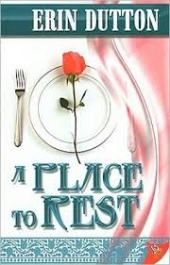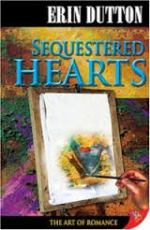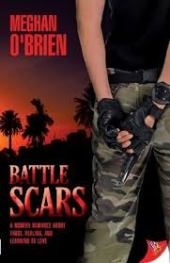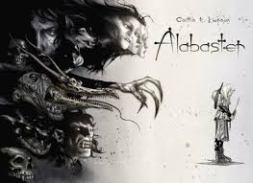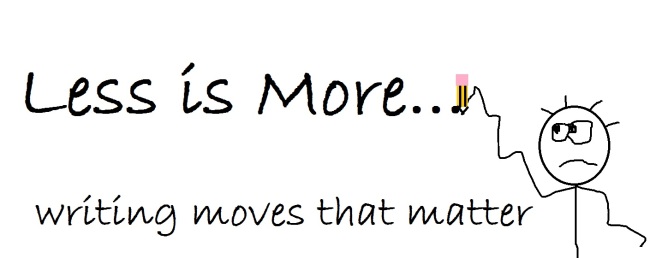This week, instead of calculating payments on my student loan debt, I’m going to submit one of my novel characters to a Mary Sue test, and you all get to watch. Sound fun? No? Then go read something else.
For the purposes of this test, I will be using a free litmus available here: http://www.springhole.net/writing/marysue.htm
I do not own nor did I make up any of these questions. Someone else did that, the someone who created this website, and I’m grateful for them. If you’re unfamiliar with what a Mary Sue is, be sure to visit that website and find out. They’re a potentially hazardous character type in original fiction.
Before we begin, I want to tell you all why I’m doing this. I primarily use this Mary Sue test when working on flushing out characters that I think are somewhat one-dimensional or did not get enough depth the first time I tried to write them. Creating living, breathing characters in a story is hard because we like to rely on previously established archetypes as guidelines. Everyone loves the badass cop, the innocent young maiden, the secretly badass maiden. These are all typical tropes, and while a trope is great for quick payout, the character who is that trope usually lacks any meaning or depth beyond what defines that trope. They’re flat, in other words.
I will be running Taylor Morgan from Dark Horizons through the Mary Sue test this time. Taylor has long been a favorite character of mine, and she originated all the way back in 2010 in a short story I wrote for a college class. She’s evolved since then, but her debut onto the public scene was a little lackluster, I feel. I have such a rich canon involving Taylor in my head, but I don’t think I spent enough time putting that into the story for readers to see, thus giving the audience a character who did not shine as much as the one in my head. Putting Taylor through a Mary Sue test highlights those important things about her I should highlight in the sequel, or perhaps give me a slap across the face and tell me she’s a little too boring. Either way, there’s only one way to find out, so let’s begin. If you really want to see every answer available, you can follow along with the actual test in another browser window. For sanity’s sake, I will be skipping over questions that are answered with a “no” for my character.
Part One – All Characters
1. Is/does your character’s name:
The question lists a lot of things, like is the name odd, do you want to name your children with it, does it have unique spelling? That kind of stuff. Taylor Morgan is about as plain as they would get, though, and I did not take it from my name at all, and no, I will not be naming my children after her.
2. Did you deliberately base your character’s looks on your own?
God no. Taylor is my opposite as far as looks go. Well, maybe we’re close in height, but not much else. I actually tried something different with Taylor in that I made her half Japanese, something I have no personal experience being, considering I am a pasty white Alaskan. While I mention this characteristic once in Dark Horizons, I do not really call attention to it because I have no freaking idea what it means to be part of that culture. Thusly, Taylor kind of didn’t either. And that works. A lot of people from cultural backgrounds only know the default they grew up in. Still, it sort of feels like a cheap grab for brownie points by making her “different” but not at the same time. Thoughts?
3. Does your character look like how you wish you look?
No. I love my tousled mane of curly hair. It’s very in right now thanks to HBO’s portrayal of Robb Stark.
4. Is your character depicted as effortlessly beautiful, cute, or handsome?
…Yes. Maia’s all over that shit. But it is a romance novel. It comes with the territory.
4d. Does anyone see your character’s attractiveness as a threat?
Does it count if Maia sees it as a threat to her freedom in the first book?
5. Does anyone want to adopt your character?
No. Well……… no.
7. Does your character have a great body/physique, which you describe, show, and/or illustrate in detail?
Yes, but it’s a romance novel! And Taylor’s in the army. You don’t get more fit than that.
9. Do you use poetic and/or creative terms to describe your character, but virtually no-one else (aside from your character’s love interest, perhaps)?
9a. Do you frequently describe your character’s beautiful/handsome/cute attributes or point out how sexy your character is?
Yes… I’m starting to sense a pattern here.
13. Does your character have a particularly attractive scent that doesn’t come from xir perfume, cologne, or shampoo?
Yes, though humans all smell different to Maia.
14. Does your character have a scar or other small “flaw” that is noticed by someone, but does not actually detract from your character’s appearance from your point of view?
Yes, and Maia finds her scars sexy. It’s an erotic novel, though. I mean… Am I expecting more of the character than I should?
16. Does your character have a particularly piercing (EG, “can stare straight into your soul”), haunting, captivating, or dazzling gaze?
According to Maia, yes.
59. How many languages does your character fluently speak?
Oh god, I have no idea!
78. If/when your character has sex, is it absolutely perfect and beyond amazing?
Yes. Though who wants to read about bad sex?
83. Has your character otherwise lost:
A close friend, check. A whole squad, actually. Taylor angsts about it for a while.
87. Does your character angst about something that she did in the past?
Yup. Kinda. Does getting your squad obliterated at the beginning of the book count?
87c. Does your character eventually learn that it wasn’t her fault?
Yeah, or at least stops blaming herself for it.
Part Two – Original Fiction
5. Are most (if not all) characters who don’t like your character merely mean, shallow, spiteful, and/or jealous of her?
Yes, but… that changes in the sequel.
7. Does anyone who doesn’t like or respect your character by the end of the story end up beaten up, humiliated, miserable, and/or dead?
Oh for the love of… yes.
Part Five – De-Suifiers
2. Has your character ever been honestly selfish, petty, lazy, shallow, or pointlessly cruel?
And she regrets it.
15. Does your character ever seriously question the morality of her actions and/or is left with a lingering doubt that she may not have done the right thing?
Oh Taylor. Yes. She has a lot of doubt about her life choices.
18. Has your character ever misjudged someone else and discovered she was completely wrong about that person?
Yes. *coughspoilerscough*
19. Does your character ever admit to being wrong, even if she doesn’t really mean it?
Though Taylor does mean it, yes.
24. Do you view your characters more like tools than friends/children?
While I occasionally joke that my characters are my babies, they are first and foremost a means to an end. They are the story, they reason someone will love or hate it, and the only thing any book has going for it, ever. Characters are your story, never forget that.
25. Did you spend days, if not months or longer carefully and thoughtfully researching the traumas/hardships/handicaps/disorders your character has so you could write them as realistically and sensitively as possible?
Yes, I honestly do. I might not achieve this, but I do try.
End of Test
So my overall score, according to the website, was 7. This is considered a “safe range” by the site’s little blurb, but I’m not so sure. What this quiz highlights for me is that Taylor gets talked about and viewed in terms of her physical appearance a lot, and while she does suffer from various traumas and has a complex past, it’s not necessarily pulled to the surface, yet.
Dark Horizons was an erotic novel, however. It’s supposed to focus on the physical. That is to be expected of a story that features the characters banging more than anything else.
So why did I subject Taylor to this test?
Because I like her as a character. She’s grown on me a little bit, so much that I hesitated before answering that my characters are less like children and more like tools. As Rae and I start writing the sequel to Dark Horizons, I keep wondering what I can do to flush out Taylor and give her the same liveliness that she has in my head. I know characters are tools to convey a good story, but the most beautiful characters often become “people” that you can identify with, and Taylor isn’t quite there, yet, though I think she can get there.
What I hope this exercise has shown you all is that writers, even published authors, need to stop and reflect on their characters. We try to write these unique people into the world, and we struggle to keep them from being too cliché or too boring. Often, we don’t see what is salient in our characters until we step back. I didn’t think that Taylor’s physical attributes would be the most profound characteristic she possessed until I plugged her into this test. If you’re a writer looking to work on improving a character, do yourself a favor and use this test. It’s a fantastic source for writers everywhere, especially those of us working in genre fictions like fantasy or science fiction.
If any of you are interested in seeing this Taylor character (and reading about raunchy lesbian sex in a sci-fi setting) you can read all about her in Dark Horizons, or not. It doesn’t matter to me.
Leave a comment! We’ll chat it up! What did you think of the test?


